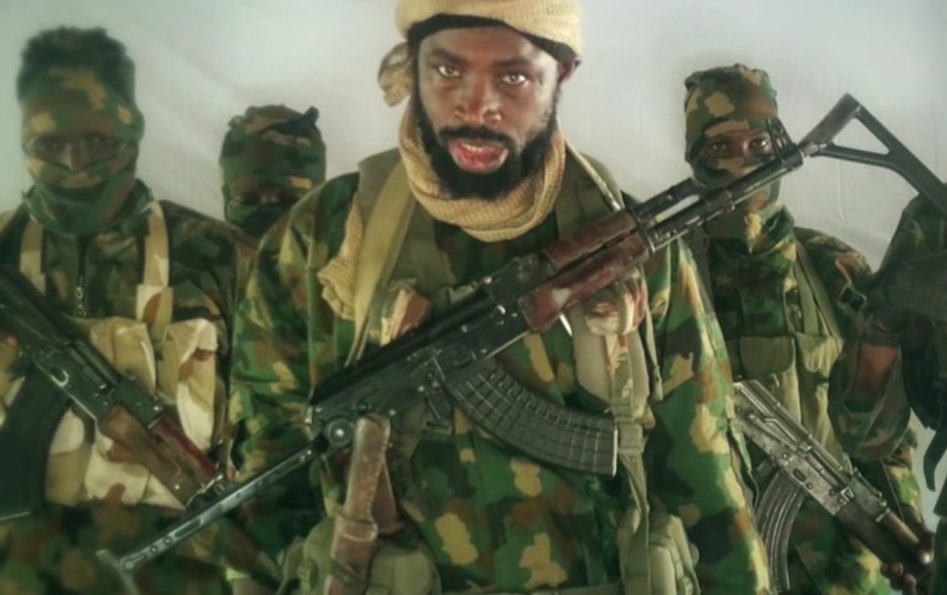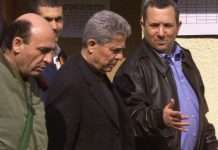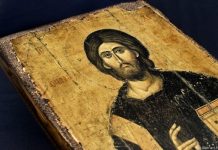Africa: Alarming Rise of Christian Persecution
Uzay Bulut/Gatestone Institute/June 26/2019
أفريقيا: الجهاد ضد المسيحيين
أوزاي بولوت/معهد كايتستون/26 حزيران/2019
إنَّ أحداث العنف الحالية التي تزداد حدَّة منذ أوائل عام 2017 “مختلفة قليلًا عمَّا كان يحدث في السابق، إذ أنَّ هناك سلسلة من الهجمات التي تستهدف المجتمعات المسيحية في محاولة لتهجير المزارعين من أراضيهم واستبدالهم بالرعاة من قبائل الفولاني” — ‘ناثان جونسون’، المنظمة الدولية المعنية بالشواغل المسيحية، المدير الإقليمي لأفريقيا.
“يُعامل المسيحيون النيجيريون الذين يعيشون في الولايات الشمالية الاثنتي عشرة التي تُطبَّق فيها أحكام الشريعة الإسلامية كما لو كانوا مواطنين من الدرجة الثانية. وهم ضحية العديد من أشكال الاضطهاد. إذ تُختطف الفتات المسيحيات ويُجبرن على الزواج من رجال مسلمين. ويُختطف الكهنة طلبًا للفدية. وتتعرَّض الكنائس للتخريب أو التدمير الكامل” – ‘ناثان جونسون’.
“منذ البداية، لم تفعل الحكومة النيجيرية والمجتمع الدولي شيئًا يُذكر لمعالجة هذه الأوضاع المأساوية. ولا يمكن القول بأنَّ هذا التجاهل أمر مستغرب: إذ لا تعترف الحكومة النيجيرية أساسًا بجذور المشكلة، أي الإيديولوجية الجهادية المتعصِّبة. ونتيجة لذلك، يزداد عدد القتلى في صفوف المسيحيين – ومن الأرجح أنَّه سيستمر في الازدياد على نحو مطرد – حتى يأتي الوقت الذي تعترف فيه الحكومة والمجتمع الدولي بسبب المشكلة وتتصدى لها” – ‘رايموند إبراهيم’، مؤلف وخبير في شؤون الشرق الأوسط.
يُذبح المسيحيون في نيجيريا بأيدي قبائل الفولاني والجهاديين المنتمين لتنظيم ‘بوكو حرام’ – ولا يبدوا أنَّ أحدًا في العالم يهتم بذلك. في الصورة: زعيم بوكو حرام ‘أبو بكر شيكاو’ في لقطة من فيلم دعائي نشره تنظيم ‘بوكو حرام’ في تشرين الثاني/نوفمبر 2018.
يُذبح المسيحيون في نيجيريا بأيدي قبائل الفولاني والجهاديين التابعين لتنظيم ‘بوكو حرام’ – ولا يبدوا أنَّ أحدًا في العالم يهتم بذلك.
وتتركَّز أغلب أشكال الاضطهاد العنيف الذي يتعرَّض له المسيحيون العزَّل – الذين يمثِّلون نصف عدد سكان نيجيريا – في الجزء الشمالي من البلاد، حيث يمثِّل المسلمون أغلبية السكان وتُطبَّق أحكام الشريعة الإسلامية، وفي الولايات التي يُطلق عليها “الحزام الأوسط” والتي تُعدُّ بمثابة منطقة انتقالية بين الولايات الشمالية والجنوبية.
ووفقًا لما ذكرته المنظمة الدولية المعنية بالشواغل المسيحية (International Christian Concern):
“واصل المسلحون التابعون لقبائل الفولاني شن هجمات عنيفة في أنحاء منطقة الحزام الأوسط في آذار/مارس”. وتثير هذه الهجمات الوحشية التي يشنها المتشددون الإسلاميون مخاوف المسيحيين الذين يعيشون في منطقة الحزام الأوسط، وخصوصًا مع التزايد المستمر في عدد الضحايا… ففي آذار/مارس وحده، قُتل ما لا يقل عن 150 شخصًا…”.
وقال الأسقف النيجيري ‘ويليام أموفي أفينيا’ (William Amove Avenya) “إنَّ رجال قبائل الفولاني المدجَّجين بالسلاح يقتلون الحوامل والأطفال ويدمرون حيازاتنا الزراعية الصغيرة.
إنَّ هذه الأفعال بمثابة قنبلة موقوتة تهدد بإشعال المنطقة بأسرها”. وأضاف قائلًا “لا يمكننا أن ننتظر وقوع إبادة جماعية قبل أن يتدخَّل أحد لوقف هذه المأساة”.
ويرِد أدناه حصر لأكبر الهجمات التي وقعت في آذار/مارس:
1- 4 آذار/مارس 2019: مسلحين من قبائل الفولاني يهاجمون ولاية بينو ويقتلون 23 شخصًا.
2- 11 آذار/مارس 2019: ميليشيات قبائل الفولاني تهاجم كاجورو وتحرق أكثر من 100 منزل وتقتل 52 شخصًا.
3- 18 آذار/مارس 2019: تنظيم ‘بوكو حرام’ يحاصر بلدة ذات أغلبية مسيحية في ولاية أداماوا التي يقطنها أكثر من 370,000 شخص”.
وفي تصريح لمعهد ‘جيتستون’، قال ‘ناثان جونسون’ (Nathan Johnson)، المدير الإقليمي للمنظمة الدولية المعنية بالشواغل المسيحية لمنطقة أفريقيا، والذي زار نيجيريا مؤخرًا، لمعهد إنَّ أحداث العنف الدامي في البلاد بدأت منذ أقل من 20 عامًا. وأضاف:”لقد كانت البداية الحقيقة لهذه الأحداث في عام 2001 بعد اندلاع أحداث شغب بين المسلمين والمسيحيين في منطقة بلاتو نتج عنها مقتل أكثر من ألف شخص وتدمير العديد من الكنائس. واندلعت أحداث شغب مشابهة في عامي 2008 و2010. ومنذ ذلك الحين، يتزايد التوتُّر بين الطائفتين”.
وأشار ‘جونسون’ إلى أنَّ أحداث العنف الحالية التي تزداد حدَّة منذ أوائل عام 2017 “مختلفة قليلًا عمَّا كان يحدث في السابق، إذ أنَّ هناك سلسلة من الهجمات التي تستهدف المجتمعات المسيحية في محاولة لتهجير المزارعين من أراضيهم واستبدالهم بالرعاة من قبائل الفولاني”.
وقال إنَّ الأعمال العدائية مدفوعة بمجموعة معقَّدة من العوامل الاجتماعية الاقتصادية (الرعاة ضد المزارعين) والعِرقية (قبائل الفولاني ضد الجميع فيما عدا قبائل الهوسا) والدينية (المسلمون ضد المسيحيين)، بيد أنَّ:
“الحكومة النيجيرية ووسائل الإعلام الرئيسية تحاول التهوين من حقيقة المأساة التي تشهدها البلاد، أي أنَّ المسلمين المتطرفين يذبحون أبناء المجتمعات المسيحية في نيجيريا. وبدلًا من ذلك، تصف الحكومة ووسائل الإعلام هذه الأزمة بأنَّها صدام بين طائفتين عِرقيتين أو جماعتين مختلفتين من الناحية الاجتماعية الاقتصادية تقتلان بعضهما البعض – بالرغم من أنَّ نحو 80 في المائة من الضحايا من المسيحيين”.
وأضاف ‘جونسون’ قائلًا:
“إنَّ المسيحيين النيجيريين الذين يعيشون في الولايات الشمالية الاثني عشرة التي تُطبَّق فيها أحكام الشريعة الإسلامية يُعاملون كما لو كانوا مواطنين من الدرجة الثانية. وهم ضحية العديد من أشكال الاضطهاد. إذ تُختطف الفتات المسيحيات ويُجبرن على الزواج من رجال مسلمين. ويُختطف الكهنة طلبًا للفدية. وتتعرَّض الكنائس للتخريب أو التدمير الكامل.
“إنَّ المسيحيين الذين التقيت بهم خلال رحلتي الأخيرة إلى نيجيريا يٌعانون أشد المعاناة من قبائل الفولاني ومقاتلي تنظيم ‘بوكو حرام’، ويأملون في أنَّ المسيحيين في أنحاء العالم يهتمون بأمرهم ويصلون من أجلهم. ولا يحصل العديد منهم على ما يكفيهم من طعام وماء ومساكن تؤويهم لأنَّهم أُجبروا على الرحيل من أراضيهم واللجوء إلى المدن، حيث لا يمكنهم العمل في الزراعة أو الالتحاق بأي عمل آخر. ولا يستطيع مئات الآلاف من الأطفال المسيحيين في جميع أنحاء البلاد الانتظام في مدارسهم بسبب عدم امتلاك أسرهم المال اللازم لذلك، أو لأنَّهم لا يستطيعون الوصول إلى تلك المدارس، أو بسبب خوف الأسر من أنَّ أطفالهم سيتعرضون للقتل والخطف في طريقهم إلى المدارس أو حتى في الفصول الدراسية”.
وفي العام الماضي، كتب ‘رايموند إبراهيم’ (Raymond Ibrahim)، وهو خبير في شؤون الشرق الأوسط، قائلًا:
“منذ البداية، لم تفعل الحكومة النيجيرية والمجتمع الدولي شيئًا يُذكر لمعالجة هذه الأوضاع المأساوية. ولا يمكن القول بأنَّ هذا التجاهل أمر مستغرب: إذ لا تعترف الحكومة النيجيرية أساسًا بجذور المشكلة، أي الإيديولوجية الجهادية المتعصِّبة. ونتيجة لذلك، يزداد عدد القتلى في صفوف المسيحيين – ومن الأرجح أنَّه سيستمر في الازدياد على نحو مطرد – حتى يأتي الوقت الذي تعترف فيه الحكومة والمجتمع الدولي بسبب المشكلة وتتصدى لها”.
‘أوزاي بولوت’ صحفية تركية وزميلة أقدم بارزة في معهد ‘جيتستون’.
Africa: Alarming Rise of Christian Persecution
Uzay Bulut/Gatestone Institute/June 26/2019
“In some regions, the level and nature of persecution is arguably coming close to meeting the international definition of genocide, according to that adopted by the UN.” — The Independent Review of FCO support for Persecuted Christians.
“The assailants asked the Christians to convert to Islam, but the pastor and the others refused. They ordered them to gather under a tree and took their Bibles and mobile phones. Then they called them, one after the other, behind the church building where they shot them dead.” — World Watch Monitor, May 2, 2019.
As the British report demonstrates, persecution against Christians and other non-Muslims is not about the ethnicity, race or skin color of either the perpetrators or the victims; it is about their religion.
If these crimes are not stopped, it is highly likely that the fate of the African Continent will be like that of the Middle East: Once it was a majority-Christian region; now, Christians are a tiny, dying, defenseless minority.
According to Lindy Lowry, writing for Open Doors, “In the Democratic Republic of the Congo’s eastern province of North Kivu, leaders of the church have been targeted and killed. Reportedly, at least 15 armed extremist groups were known to be operating in the area.” Pictured: The town of Beni, in North Kivu, where dozens of Christians were murdered in an attack on September 22, 2018. (Image source: Razdagger/Wikimedia Commons)
According to a recent interim report published in the U.K., “it is estimated that one third of the world’s population suffers from religious persecution in some form, with Christians being the most persecuted group.”
Although the full report — commissioned by British Foreign Secretary Jeremy Hunt and conducted by the Bishop of Truro, the Right Reverend Philip Mounstephen — was due to be released by Easter this year, “the scale and nature of the phenomenon [of Christian persecution] simply required more time,” according to the report. As a result, Mounstephen explained, the “interim” findings released in April are incomplete, and the final report will be published at the end of June.
According to the “overview” section of the interim “Independent Review of FCO support for Persecuted Christians”:
“In some regions, the level and nature of persecution is arguably coming close to meeting the international definition of genocide, according to that adopted by the UN.”
Africa — now home to the greatest number of Christians in the world — is one such region.
On June 16, for instance, a Christian elementary school in a Muslim village in Uganda was destroyed, International Christian Concern (ICC) reported.
On June 15, “a mob of Muslim protestors set a church ablaze in Maradi, the third largest city in Niger. The incident was a response to the arrest of a very prominent Imam who was arrested after he claimed the country’s proposed legislation on worship was ‘anti-Islamic.'”
On June 9 and 10, two terrorist attacks in Burkina Faso left 29 Christians dead. This purposeful slaughter of Christians came less than two months after the April 28 massacre of 80-year-old pastor, Pierre Ouédraogo, and other members of his congregation in Burkina Faso, by armed Islamists. A local leader, who requested anonymity, told World Watch Monitor:
“The assailants asked the Christians to convert to Islam, but the pastor and the others refused. They ordered them to gather under a tree and took their Bibles and mobile phones. Then they called them, one after the other, behind the church building where they shot them dead.”
On June 7, a Christian woman in Niger was kidnapped by Boko Haram terrorists and released three days later with a letter calling on all Christians to “leave the town within three days or be killed.”
The above incidents are not isolated. According to the 2019 World Watch List compiled by Open Doors, a persecution watchdog group:
“While the violent excesses of ISIS and other Islamic militants have mostly disappeared from headlines from the Middle East, their loss of territory there means that fighters have dispersed to a larger number of countries not only in the region but, increasingly, into sub-Saharan Africa. Their radical ideology has inspired, or infiltrated, numerous splinter groups such as Islamic State West Africa Province (ISWAP), a deadly group that broke away from Nigeria’s Boko Haram that also enslaves Christian women and girls as an integral part of their strategy.”
Terrorist groups are not the only sources of persecution in Africa. Many Muslim governments and individuals also target Christians.
According to the Open Doors 2019 report, the situation in many African nations is as follows:
In Somalia, there is a “life of violence and isolation” for the Christian community that numbers only a few hundred.
“Estimates suggest that 99 percent of Somalis are Muslims, and any minority religions are heavily persecuted. The Christian community is small and under constant threat of attack. Sharia law and Islam are enshrined in the country’s constitution, and the persecution of Christians almost always involves violence. Additionally, in many rural areas, Islamic militant groups like al-Shabab are de facto rulers. Somali Christians often must hide their faith to stay safe.”
Libya is home to a Christian population of only around 38,000.
“Converts to Christianity face abuse and violence for their decision to follow Christ. Libya is also home to many migrant workers who have been attacked, sexually assaulted and detained, which can be even worse if it is discovered they are Christians.”
Sudan is home to 1.9 million Christians.
“The country has been ruled as an Islamic state with limited rights for religious minorities and heavy restrictions on freedom of speech and press. Christians, whose population is over 1,900,000, face discrimination and pressure— multiple church buildings were demolished in 2017 and 2018, leaving some Christians without a place to worship. Christian converts from Islam are especially targeted for persecution.”
In Eritrea, sometimes called “Africa’s North Korea”, there are around 2.5 million Christians, and many suffer in prisons.
“Since 1993, President Isaias Afwerki has overseen a brutal authoritarian regime that rests on massive human rights violations. In 2018, there were raids on churches, and hundreds of Christians were imprisoned in inhumane conditions. Additionally, there are estimates that other Christians are currently in Eritrea’s vast prison network, but no one knows how many there are or if they are still alive.”
Nigeria, where over 90 million Christians live, is one of the worst places in Africa for Christians.
“Nigeria’s score for violence has stayed as high as possible, primarily due to the increased attacks on Christian communities by militant Fulani herdsmen. These attacks claimed the lives of hundreds of believers during the reporting period, and villages and churches burned to the ground. Additionally, in parts of northern Nigeria, Christians are treated as second-class citizens. Christians from Muslim backgrounds face persecution from their own families”.
Christians in Egypt, whose Christian population is 9,937,600, suffer from persecution in various ways.
“Those with Muslim backgrounds face enormous pressure from immediate and extended families to return to Islam. Severe restrictions on building or securing places for worship prevent Christians from congregating, in addition to hostility and violence toward believers who do gather. In recent years, Islamic extremist groups have targeted Christians and churches in numerous violent and deadly acts of persecution.”
In the Central African Republic (CAR), the main religion is Christianity, and the Christian population numbers more than 3,450,000.
“Over the last year, the situation has worsened for CAR Christians who face intensifying pressure from Muslims. Christians are also threatened by jihadists and criminal groups in the country whose actions often overlap. And Christian civilians are still caught in the violent conflict between the mainly Muslim Seleka and self-defense militant groups called anti-Balaka.”
Algeria, where around 125,000 Christians live, “has seen an increasing number of churches closed” over the last year.
“At the same time, Christian converts have become more open about their faith, leading to a backlash by Muslim families and the intolerant society. Laws regulating non-Muslim worship, banning conversion and prohibiting blasphemy make proselytizing and public expression of the Christian faith dangerous as well.”
In Mali, the Christian population is 425,000.
“The West African country has become increasingly militant. In the northern part of the country especially, this intolerance has resulted in increasing violence against Christians from jihadist and criminal groups that have a vested interest in keeping the country mired in chaos and instability.”
In Mauritania, there are only around 10,000 Christians from population of 4.5 million people.
“The ‘Islamic Republic of Mauritania’ — the autocratic government of Africa’s 11th largest country — often acts as protector of the Islamic religion. As a result, the state is a major source of persecution. Radical Islamic preachers and militants contribute to the radicalization of society, fueling antagonism and hatred toward non-Muslims. Additionally, a caste system marginalizes darker-skinned Mauritanians and those who do not adhere to Islam.”
In Ethiopia, where the main religion is Christianity and the Christian population numbers more than 64 million, “radical Islam is growing at the local, regional and national levels. Particularly in the rural areas, where Muslims are the majority, Christians are harassed and often denied access to communal resources.”
Morocco has a Christian population of around 31,500.
“Christians suffer persecution from both the state and society. There are restrictions imposed by the state on Christians, such as confiscation of Christian materials written in Arabic, restrictions on evangelization and difficulty getting places of worship for believers from a Muslim background. Radical Muslims within the general populace also put pressure on Christians. In rural areas, pressure from family and community can also be considerable.”
In Tunisia, for the small community of Christians numbering around 24,000, “life within Islamic society comes with hostility and daily pressure.”
“And the threat of Islamic militant activity—especially by those returning from fighting with ISIS—is still worrying, with one suicide-attack on a police station in Tunis in September and a major attack in the border region with Algeria in July 2018.”
In Kenya, another African nation where the main religion is Christianity, Christians are targeted both by Muslim officials and terror groups.
“Inspired by Islamic radicals in Somalia, Muslim politicians have made it their agenda to eliminate Christianity. Officials often demand churches do things that are not in line with their faith, while militants viciously carry out suicide bomb attacks and other brutal acts against those considered to be the enemies of Islam. Due to corruption inside the government agencies, those operating against Christians tragically often enjoy impunity.”
In a May 21 article for Open Doors, Lindy Lowry says that Boko Haram, founded in 2002 in Nigeria, has expanded into neighboring countries:
“They have conducted terrorist attacks in Niger, Chad and Cameroon, which have resulted in dramatic refugee and humanitarian crises. They are even regarded as ‘slave raiders’ who target women in raids for ‘wives’ in the areas around Lake Chad, which borders Chad, Niger, Cameroon and Nigeria…
“In Rwanda, the country has closed thousands of churches and has arrested at least six pastors since February 2018 for ‘noise pollution’ and failing to comply with building regulations. In the Democratic Republic of the Congo’s eastern province of North Kivu, leaders of the church have been targeted and killed. Reportedly, at least 15 armed extremist groups were known to be operating in the area.”
As the British report demonstrates, persecution against Christians and other non-Muslims is not about the ethnicity, race or skin color of either the perpetrators or the victims; it is about their religion. In Africa, various Islamist groups and individuals are attacking and attempting to annihilate Christians for being Christian. If these crimes are not stopped, it is highly likely that the fate of the African Continent will be like that of the Middle East: Once it was a majority-Christian region; now, Christians are a tiny, dying, defenseless minority.
*Uzay Bulut, a Turkish journalist, is a Distinguished Senior Fellow at Gatestone Institute.
© 2019 Gatestone Institute. All rights reserved. The articles printed here do not necessarily reflect the views of the Editors or of Gatestone Institute. No part of the Gatestone website or any of its contents may be reproduced, copied or modified, without the prior written consent of Gatestone Institute.























